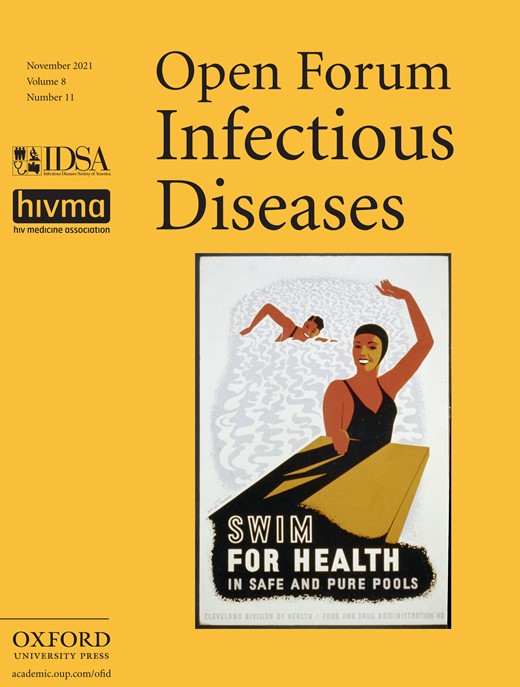-
PDF
- Split View
-
Views
-
Cite
Cite
Andrew Hill, Anna Garratt, Jacob Levi, Jonathan Falconer, Leah Ellis, Kaitlyn McCann, Victoria Pilkington, Ambar Qavi, Junzheng Wang, Hannah Wentzel, Retracted: Meta-analysis of Randomized Trials of Ivermectin to Treat SARS-CoV-2 Infection, Open Forum Infectious Diseases, Volume 8, Issue 11, November 2021, ofab358, https://doi.org/10.1093/ofid/ofab358
Close - Share Icon Share
Abstract
Ivermectin is an antiparasitic drug being investigated for repurposing against severe acute respiratory syndrome coronavirus 2 (SARS-CoV-2). Ivermectin showed in vitro activity against SARS-COV-2, but only at high concentrations. This meta-analysis investigated ivermectin in 23 randomized clinical trials (3349 patients) identified through systematic searches of PUBMED, EMBASE, MedRxiv, and trial registries. The primary meta-analysis was carried out by excluding studies at a high risk of bias. Ivermectin did not show a statistically significant effect on survival (risk ratio [RR], 0.90; 95% CI, 0.57 to 1.42; P = .66) or hospitalizations (RR, 0.63; 95% CI, 0.36 to 1.11; P = .11). Ivermectin displayed a borderline significant effect on duration of hospitalization in comparison with standard of care (mean difference, –1.14 days; 95% CI, –2.27 to –0.00; P = .05). There was no significant effect of ivermectin on time to clinical recovery (mean difference, –0.57 days; 95% CI, –1.31 to 0.17; P = .13) or binary clinical recovery (RR, 1.19; 95% CI, 0.94 to 1.50; P = .15). Currently, the World Health Organization recommends the use of ivermectin only inside clinical trials. A network of large clinical trials is in progress to validate the results seen to date.
Open Forum Infectious Diseases, Volume 8, Issue 11, November 2021, ofab358, https://doi.org/10.1093/ofid/ofab358
On July 6, 2021, Open Forum Infectious Diseases published the article “Meta-analysis of Randomized Trials of Ivermectin to Treat SARS-CoV-2 Infection” by Hill, et al. Subsequently, we and the authors learned that one of the largest studies on which this analysis was based was withdrawn due to fraudulent data; additional problems have emerged regarding other studies included in the original paper. An editorial Expression of Concern was first published under this record as the authors revised their analysis for resubmission.
The authors submitted and published a corrected version of the analysis with commentary on assessing trial quality while creating meta-analyses, available to read in OFID: “Ivermectin for COVID-19: Addressing Potential Bias and Medical Fraud” by Hill et al., https://doi.org/10.1093/ofid/ofab645. The original analysis has been retracted.





Comments
There was a mistake in quoting the number. It was not reference 21, but reference 20. The paper is called "Safety of high-dose ivermectin: a systematic review and meta-analysis"
https://doi.org/10.1093/jac/dkz524
In the Bangladeshi study it included only sixty patients in total and none had severe disease.
Sadly any publications is being held as irrefutable proof of its effectiveness and no doubt the removal from even pre print publication will be heralded as censorship and the coordinated effort of "big pharma" to gain financially.
Are the authors aware of the the retraction of the pre-print by Elgazzar et al. (https://www.researchsquare.com/article/rs-100956/v1) over concerns of potential scientific fraud and breach of ethical conduct? This study was the largest study by patient number included in the meta-analysis, and also had the largest drug effect. Given the outsize effect this would have on the meta-analysis and concerns of the scientific integrity of this study, will the authors consider revising their analysis with this study excluded from the meta-analysis?
higher doses of ivermectin, of up to 2mg/kg, and those receiving longer courses, of up to 4 days, compared to those receiving standard doses. [21]" The reference provided, however, is not a meta-analysis. It is a review paper that currently has an editor's note that the conclusions of the paper are subject to criticisms that are being considered by the editors and the publisher.